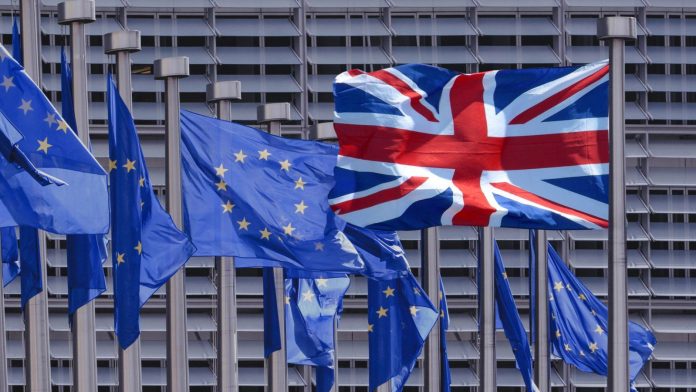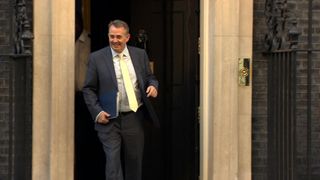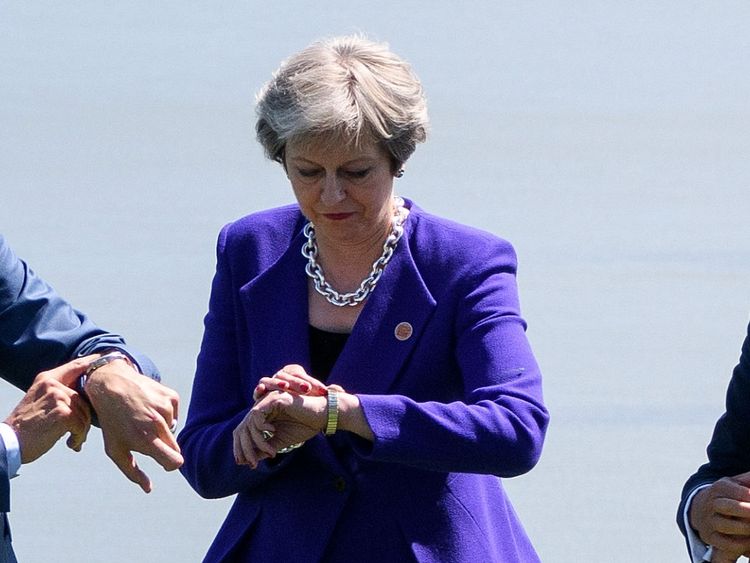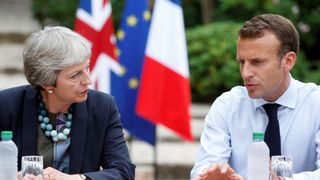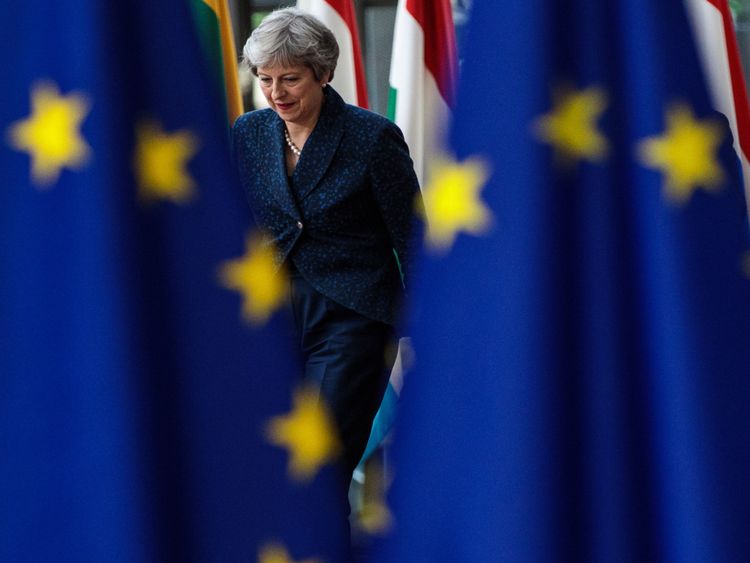[ad_1]
Liam Fox’s assertion that the UK sports a 60% chance of falling out of the European Union without a deal got all the headlines.
But no less remarkable was another statement, also detailed in the Sunday Times, where the international trade secretary remarked: “If [no deal] is causing some anxiety in Britain – think what it’s causing in Brussels.”
The implication was clear – the EU has more to lose from no deal than us.
The problem for Mr Fox is no one in the British government or civil service, in Brussels or across the chancelleries of Europe really believes that.
Mr Fox’s comments, however, are illuminating in another (unintended) way.
They reveal something not just about his own thinking but about the Leavers he represents too.
It is connected to the oft-repeated mantra that “they need us just as much as we need them”.
It is one of the phrases of our Brexit-infused age, one which the public has adopted and repeats themselves.
That they do is because it speaks to their own conception of British statecraft – the public views the EU/UK battle as one of two equal powers.
As painful as it might be for us to accept, it is not.
Yes the UK is the EU’s second-largest economy. Yes it is its largest military player. Yes we are a cultural powerhouse. Yes we are their biggest individual market. Britain is powerful – but the EU is more powerful than we are.
On paper – this should not be surprising, yet no politician, of any stripe, would ever dare say it.
But the facts speak for themselves: We are 65 million of a bloc of 450 million. Ours is a $2.9trn (£2.2trn) economy, they are $19trn (£14.6trn) They represent 44% of our exports. We, just 9% of theirs. They are 27 – we are one.
The impact of a no deal (as all the studies show) would be considerable but they have a crucial advantage: they are able to spread the risk and burden. For that reason, the same studies show, it would hurt us far more. We have nowhere else to turn.
This should not be surprising.
Imagine another country taking Britain’s place – that we had ‘Frexit’ or ‘Nexit’ or ‘Spexit’ or even ‘Deutschexit’, ask yourself where the power would lie. It would be with the remaining states of the union.
That we struggle to come to terms with that is, I think, deeply revealing of the British psyche.
It adverts to the last vestiges of an imperial mindset, a sense too that we have, as a people, never really accepted our status as a diminished power, incapable of acting purely alone.
I doubt, for various historical reasons, that any other country in the EU, even those comparable in power or economic might to Britain (with the possible exception of France, who would have similar post imperial issues) would have trouble perceiving the power dynamics as they truly are.
Indeed, it was this post-imperialism which was a crucial component of the underlying psychology of British entry to the EEC in 1973.
We entered as a new means of projecting British power. Sharing sovereignty- but with the prize of new clout.
The Sun newspaper – then proudly europhile – said that EEC membership was “an opportunity for a nation that lost an empire to gain a continent”.
But it was a smokescreen, comforting words obscuring the truth that we joined the Common Market as a means of national salvation, as the sick man of Europe, buffeted by years of industrial and economic turmoil. A cold industrial and economic reality buttered with a layer of British pomp.
This imbalance was obscured through years of membership – we had no need to confront our own relative weakness as a member of the club – but now we are outside, that asymmetry of power is exposed for all to see.
That is why we have accepted concession after concession, not because of Theresa May’s pusillanimity but because of the hard truths of realpolitik.
That is why Mrs May and her ministers have been conducting a grand tour of Europe. Not because they want yet more sea bass and asparagus in yet another state dinner, but because they recognise how powerful they are as a bloc and how isolated we are in their face.
They want to tear them asunder, to divide and conquer – this is what David Davis said would happen during the referendum. Yet, they have remained, in 18 months a united set of two, while our own house, our own government, has been fatally divided.
Time and again throughout our history, Britain has acted to prevent the emergence of a hegemonic power which controlled all of Europe, aware that Britain, even with an empire, could not resist a united continent’s gravitational pull. Today’s crop of politicians, seem to have forgotten that lesson.
Looked at through the psychology of the British public’s collective psyche, we can see Mrs May as the Wizard of Oz – less powerful than her people think, or than our population would like others to believe.
That is what is invidious about Brexit for British politicians – for the British public to accept Chequers, or something like it, would essentially be to ask the British people to accept a downgrade of their own view of British power, a downgrade of the sort of country we think we should be and that we think we are.
We are not an especially jingoistic nation, but that is much to stomach. It is a view which, however unfair, would be repeated and churned by the exact Brexiteers who, from Mrs May’s point of view, forced us to accept the downgrade in the first place.
Suez was a moment when the scales fell from the eyes of British politicians; it became clear that the UK could no longer act alone on the global stage.
I wonder whether Brexit will come to be seen as the second geopolitical reckoning, the moment perhaps when we all came to see, with a Suez-like clarity, things for how they truly are.
[ad_2]
